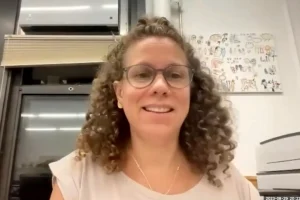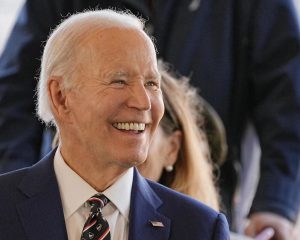Young people are skeptical of the American Dream

There are some striking divides in a new CNN poll, but they aren’t necessarily the partisan kind Americans have come to expect: The divides are more gray than red versus blue.
The first has to do with the American Dream, which a growing number of Americans feel is out of reach. Most, 54%, still agreed with the idea that “people who want to get ahead can make it if they’re willing to work hard,” in the new poll, conducted by SSRS.
What’s noteworthy is that when CNN asked the same question back in 2016, more than two-thirds of respondents, 67%, agreed with that optimistic idea.
Looking at the new poll’s results by age, younger Americans are less bullish that they can “make it.”
About half, 51%, of those under 45, felt that “Hard work and determination are no guarantee of success for most people,” compared with 41% of those 45 and older.
There’s likely some partisanship behind those numbers, since younger Americans tend to be more liberal, despite the inroads that President Donald Trump and Republicans have made with young people.
But the age divide exists, to a more modest extent, even within the Democratic Party. More than two-thirds of Democrats and Democratic-leaning independents under 45 say that hard work and determination are no guarantee of success. A smaller portion, 62% of older Democrats and Democratic-leaning independents feel that way.
Read the full report by CNN’s Ariel Edwards-Levy.
A second question in the poll asks whether the government should do more or whether it is trying to do too many things already.
A majority, 58%, say the government should do more to solve the country’s problems, up from just 51% when CNN asked the question nearly two years ago.
More young people, 63% of those under 45, said they want more from the government, compared with 54% of those 45 and older.
The government arguably does more for older people: It helps to provide health care in the form of Medicare and retirement benefits in the form of Social Security for a large portion of older Americans. At the same time, the ballooning national debt means those programs’ future is on an unsustainable path for younger Americans.
Asked about which party they feel represents their views on the economy, three-quarters of people over 45 picked either Democrats (32%) or Republicans (42%), leaving just about a quarter of older Americans who said neither party represented them on the economy.
A larger portion of people under 45, 38%, said they did not feel represented by either party on the economy.
Another CNN story published Monday might help explain some of the malaise felt by younger Americans.
This is from CNN’s report on the “No hire, no fire” economy by Matt Egan:
… Even as the overall labor market looks relatively healthy, economists say this is the worst market for new college graduates since the height of the Covid-19 pandemic. Recent grads are finding that it takes considerable time to get hired, leaving them unemployed and saddled with student debt for a frustratingly long time.
For the first time since record-keeping on the topic began in 1980, the unemployment rate for recent graduates (those 22 to 27 years old with a bachelor’s degree or higher) is consistently higher than the national unemployment rate, according to Oxford Economics.
The unemployment rate for people between 20 and 24 is twice the national average, and there is evidence that companies are adjusting how they make entry-level hires as they adopt AI advancements.
All of that could point to a distinct lack of optimism among younger Americans.


